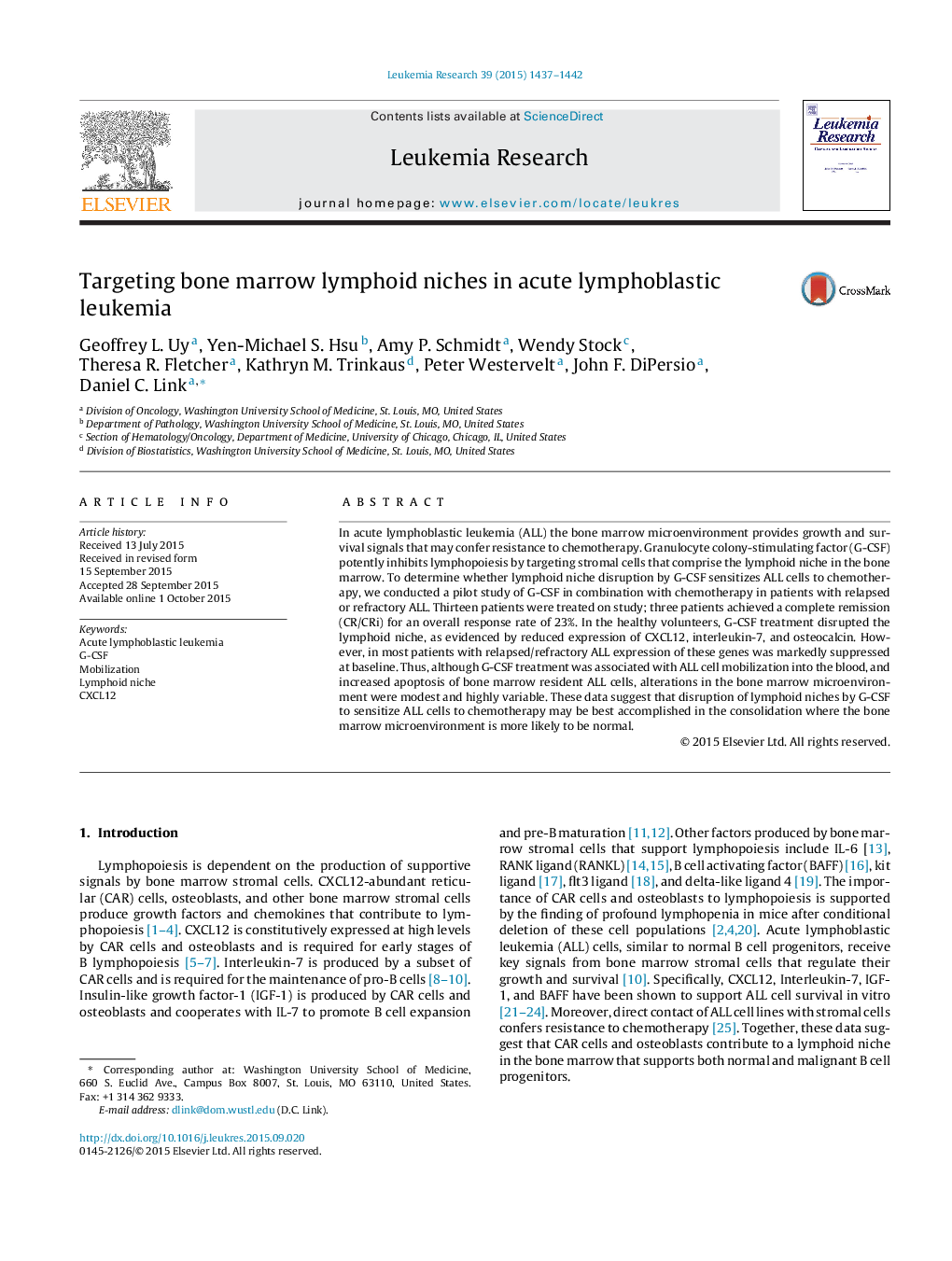| Article ID | Journal | Published Year | Pages | File Type |
|---|---|---|---|---|
| 2136532 | Leukemia Research | 2015 | 6 Pages |
•G-CSF disrupts lymphoid niches in healthy human subjects.•The lymphoid niche is disrupted in most patients with relapsed/refractory ALL.•Treatment with G-CSF has modest and highly variable effects on the bone marrow microenvironment in patients with relapsed/refractory ALL.•G-CSF treatment mobilized ALL cells and induced apoptosis of bone marrow resident ALL cells.
In acute lymphoblastic leukemia (ALL) the bone marrow microenvironment provides growth and survival signals that may confer resistance to chemotherapy. Granulocyte colony-stimulating factor (G-CSF) potently inhibits lymphopoiesis by targeting stromal cells that comprise the lymphoid niche in the bone marrow. To determine whether lymphoid niche disruption by G-CSF sensitizes ALL cells to chemotherapy, we conducted a pilot study of G-CSF in combination with chemotherapy in patients with relapsed or refractory ALL. Thirteen patients were treated on study; three patients achieved a complete remission (CR/CRi) for an overall response rate of 23%. In the healthy volunteers, G-CSF treatment disrupted the lymphoid niche, as evidenced by reduced expression of CXCL12, interleukin-7, and osteocalcin. However, in most patients with relapsed/refractory ALL expression of these genes was markedly suppressed at baseline. Thus, although G-CSF treatment was associated with ALL cell mobilization into the blood, and increased apoptosis of bone marrow resident ALL cells, alterations in the bone marrow microenvironment were modest and highly variable. These data suggest that disruption of lymphoid niches by G-CSF to sensitize ALL cells to chemotherapy may be best accomplished in the consolidation where the bone marrow microenvironment is more likely to be normal.
